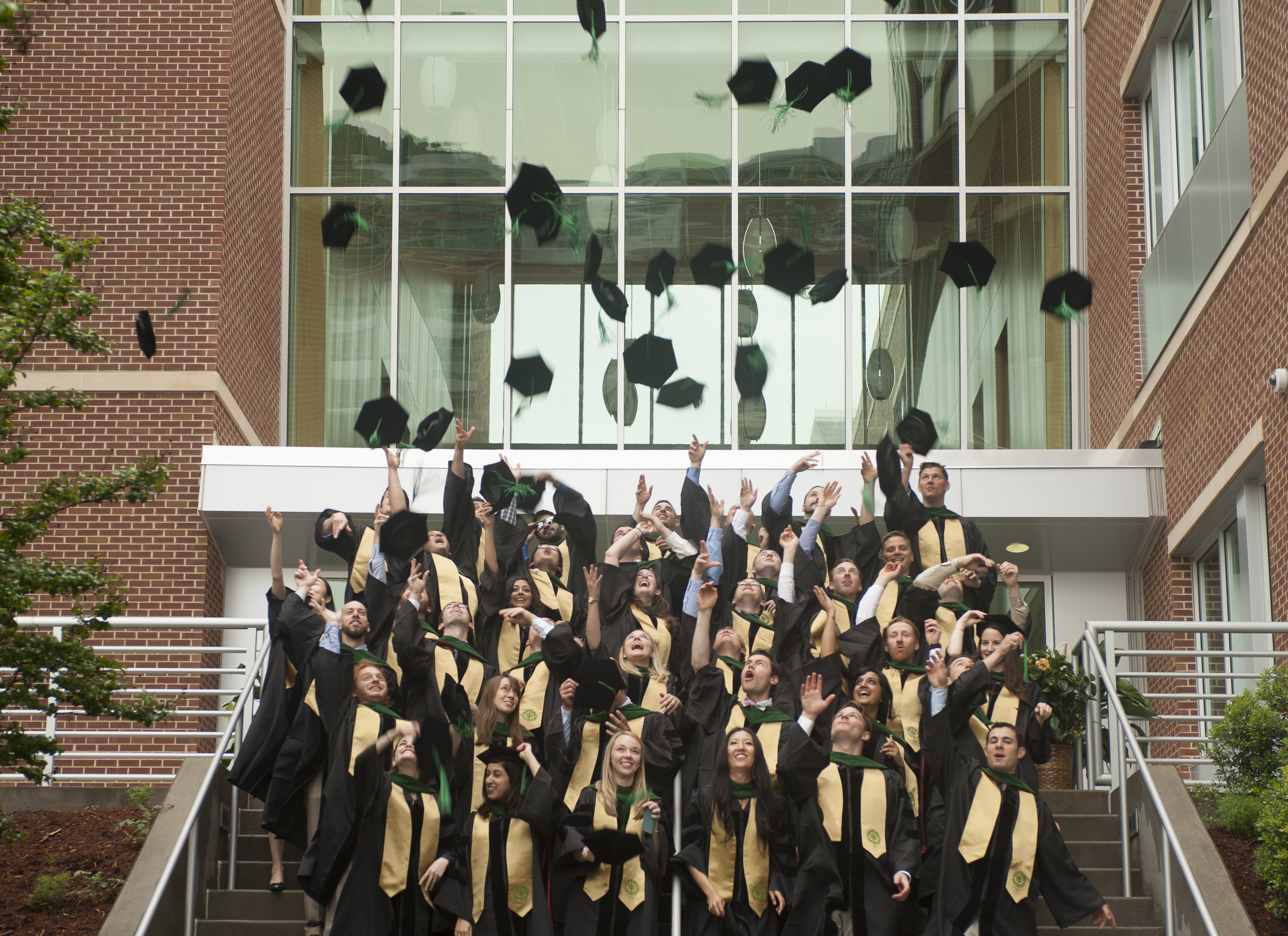Virginia Tech Carilion School of Medicine caps off first graduation with full accreditation

The Virginia Tech Carilion School of Medicine has received full accreditation from two key organizations, making it the nation’s newest fully accredited medical school. The separate announcements came after both accrediting bodies met earlier this week.
“We needed to graduate our first class before we could become fully accredited,” said Dr. Cynda Johnson, founding dean of the school. “We achieved that in May; now we’re ecstatic to have achieved these next huge milestones.”
The first announcement of full accreditation came from the Liaison Committee on Medicine Education, the nationally recognized accrediting authority for M.D. programs in the United States and Canada. The LCME granted the school preliminary accreditation in 2010, which enabled it to admit students and begin operating as a medical school. Two years later, the school received provisional accreditation, which allowed members of its charter class to enter clinical clerkships.
This week’s second accreditation announcement came from the Southern Association of Colleges and Schools, one of the nation’s six regional accrediting bodies, which is charged with quality assurance for educational institutions in the southern region.
“We couldn’t be more delighted,” said Virginia Tech President Timothy Sands. “The core strength of the Virginia Tech Carilion School of Medicine is its union between Virginia Tech – an institution with world-class programs in science, engineering, and biomedicine – and Carilion Clinic, a health care system with a long and distinguished history in medical education. These accreditation successes reflect on this innovative collaboration as well as the school’s extraordinary program and talented faculty and staff.”
The school’s curriculum emphasizes patient-centered, problem-based learning in small groups. According to Johnson, the achievements of the charter class – those who graduated last month – have demonstrated the success of the school’s ambitious model.
In their first national benchmark, 100 percent of the class members passed the first step of the United States Medical Licensing Examination on their first try, with scores well above national average. During their fourth year of medical school, the class once again surpassed the national average, this time in the second step of the examination. And, at the school’s inaugural Match Day this past March, all members of the charter class were matched to a residency of their choice.
“This is certainly a day for celebration,” said Nancy Howell Agee, president and chief executive officer of Carilion Clinic. “When this school began operation in 2010 we knew it was something special, with great potential to support excellent patient care. With the Virginia Tech Carilion School of Medicine, we had a program that incorporated small class sizes and intense, patient-centered learning with an experienced medical teaching faculty. Accreditation is a validation of everyone’s vision and efforts, and the value this unique collaboration brings to all.”
That vision also included an intensive research component threaded through all four years of the school. More than 1,200 hours of the curriculum are devoted to research, and it shows: More than 50 of the medical students have presented their research at conferences around the country and even internationally, and a number of them have been published in scientific journals.
“I’m so thankful for the vision and generosity of our founding partner institutions, Virginia Tech and Carilion Clinic,” said Johnson. “And I’m unbelievably proud of our team – our faculty, our staff, and our students – for their remarkable work in making this school a reality. Without this unified effort, we could not have achieved these milestones and built this premier medical school.”
The LCME is jointly sponsored by the Association of American Medical Colleges and the Council on Medical Education of the American Medical Association. Accreditation by the LCME is a voluntary, peer-review process of quality assurance that determines whether medical degree programs meet established standards. LCME-accredited schools are eligible for selected federal grants and programs, and their enrolled students are allowed to take medical licensing examinations and be accepted into accredited residency programs.
SACS, which accredits more than 13,000 public and private educational institutions ranging from preschool to post-college level in the southern United States, is recognized by the U.S. Department of Education and the Council for Higher Education Accreditation.
Written by Catherine Doss.




